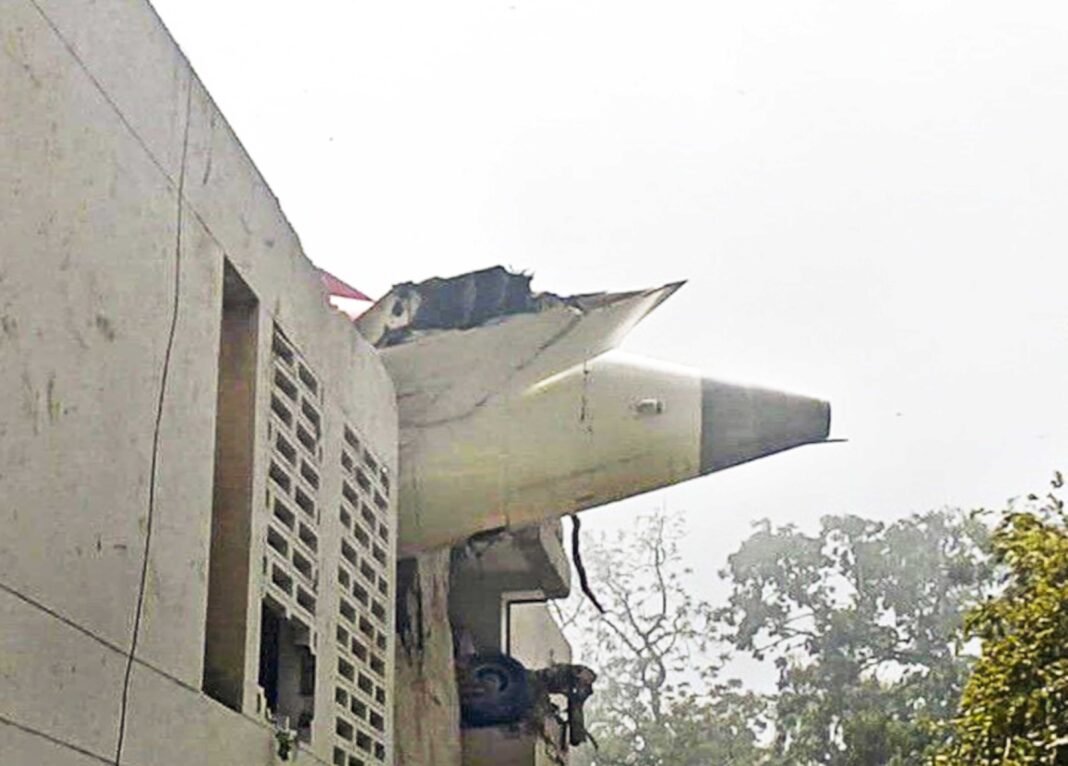HT DIGITAL
GUWAHATI, JULY 12: An initial report into the Air India Boeing 787-8 crash on June 12 in Ahmedabad shows that both engines lost power seconds after take-off when the fuel control switches suddenly changed direction. The crash, which resulted in the deaths of at least 260 individuals, continues to be actively investigated, with numerous issues as yet unexplained.
Both fuel switches, the report published by the Aircraft Accident Investigation Bureau (AAIB) on Friday stated, had shifted from the “RUN” position to the “CUTOFF” within seconds of the aircraft lifting off. The switch on the first engine shifted three seconds after take-off at 1:38:42 pm, followed by that on the second engine a second later. The report does not determine whether this shift was inadvertent or intentional.
Cockpit voice recordings allegedly recorded one pilot asking the other why the fuel supply was shut off. The second pilot denied doing so. The report did not indicate which pilot had posed the question or produce a complete transcript of the conversation. Aviation analyst Amit Singh commented that the switches were supposed to be locked in place, and until it is established how they became disengaged in flight, the whole picture is incomplete.
First Officer Clive Kundar was flying the plane at the time of the crash, having 1,100 flying hours, when Captain Sumeet Sabharwal, with 8,200 flying hours, was watching over the flight. Thirty seconds after departure, one of the pilots made a distress call: “MAYDAY MAYDAY MAYDAY.” Air traffic control tried to get back, but nothing was received after that. At 1:39 pm, the plane crashed just outside the airport area.
Ten seconds later the switches on the fuel were turned to CUTOFF and ten seconds after that were reset to RUN. One of the engines had recovered, but the other did not respond. The aircraft kept going slower and crashed 17 seconds later. The flight data recorder ceased at 1:39:11 pm.
The AAIB affirmed that the Ram Air Turbine (RAT) of the aircraft, an auxiliary power source, came on automatically—a normal reaction to dual engine failure. There was no indication of bird activity, eliminating bird strike as a cause.
The plane never had any issues with its fuel control switches since 2023, when the throttle control module had been the last to be replaced. Nonetheless, a 2018 FAA advisory had cautioned against possible failures in the locking mechanism of the fuel switch. Air India did not conduct the inspections associated with that advisory because the directive was not mandatory.
AAIB said that currently, there are no new airworthiness directives for the Boeing 787-8 or GE GEnx-1B engines. The investigation continues to collect more evidence from the parties concerned. Air India and Boeing both confirmed receiving the preliminary report and are assisting authorities fully.












